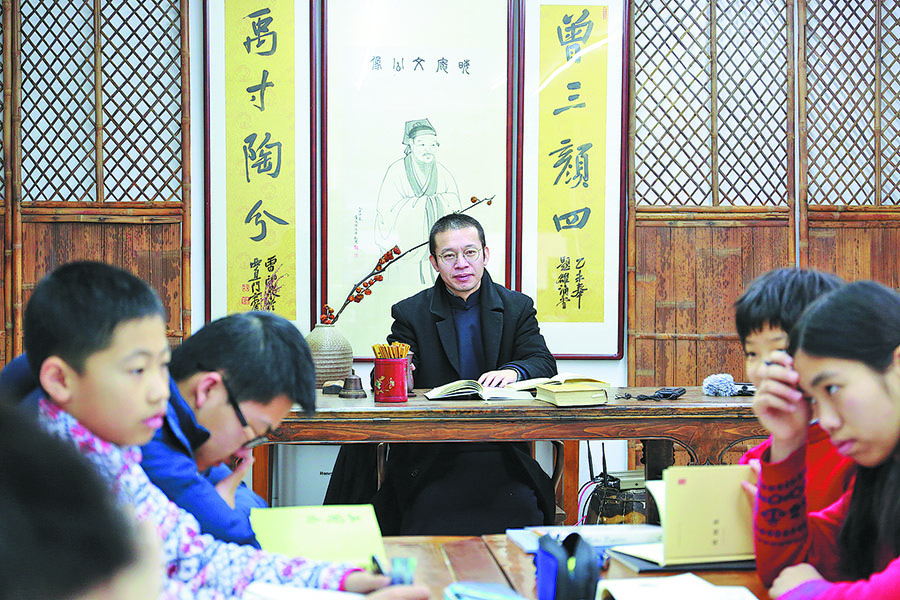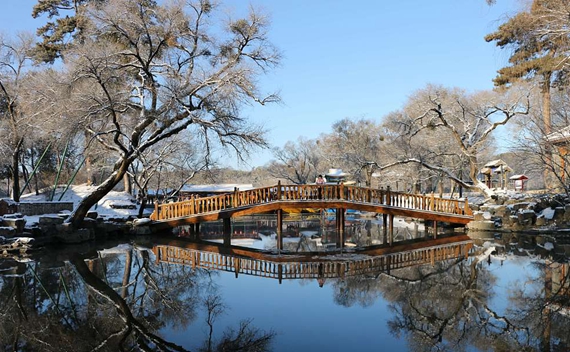Weight of early poetry felt through the ages
2025-06-10 21:05 CHINA DAILY
In other words, the act of writing poetry, as an often idiosyncratic if not entirely whimsical pursuit, was deeply entwined with politics in ancient China. That tradition was set byShi Jing, says Tan Zuowen, who teaches ancient Chinese literature at Beijing's Capital Normal University.

Tan Zuowen, who teaches ancient Chinese literature at Beijing's Capital Normal University, presides over his poetry class with younger students.[Photo provided to China Daily]
“The 160 poems inGuo Feng(The Airs of the States), the first and largest section of the book, were traditionally regarded as folk song lyrics. However, their literary sophistication suggests they were at least partly composed by educated members of society, who drew on everyday scenes and narratives to express personal reflections and political sentiments,“ Tan says. “The rhetorical techniques employed in this process, most notably the use of metaphor, analogy, and evocative imagery such as natural landscapes, were later woven into the fabric of the Chinese poetic tradition.“
One example features the image of a “fat rat“ as a symbol of greedy exploiters, offering a sharp critique of social injustice. In another, the lines “The reeds and rushes grow lush and green, the white dew turns to frost“ open a poem with a misty, ethereal atmosphere, setting the tone for a poignant expression of longing.
“Longing for what? Many modern readers interpret it as yearning for the beloved,“ Tan says, referring to the termyi ren, meaning “that person“.
“What they often overlook is that, to the poem's contemporaries, it did not signify a romantic lover, but a junzi, a noble gentleman who embodies the moral ideals. It is from this that its political connotation arises.“








